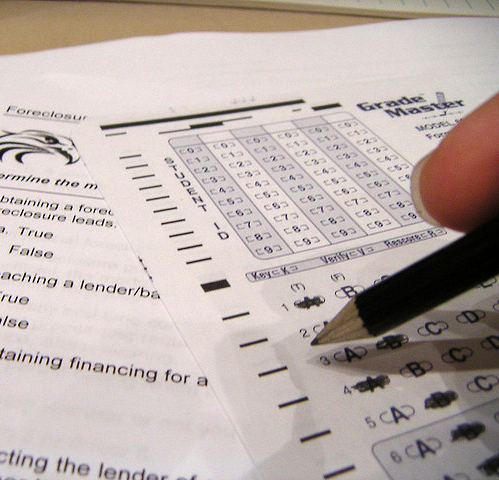As far as I know, no P2PU course has a grading policy. To my mind, it would be somewhat antithetical to give participants grades. It flies in the face of self-directed learning to have an external judge make the decision on whether a participant has met the goals (and which goals? the course goals? the participant goals?).
If participants didn’t need externally-validated credits (e.g. teachers and CEUs), we’d probably never even have this discussion.
On the other hand, I understand that official credit cannot be given absent a determination of whether each participant has earned it.
What then could/should be used to assess student participation and learning? Here are some ideas.
- Learner participation in discussions, collaborative projects, etc.
- time
- number of posts
- depth of participation
- Contributions to peer learning
- Accomplishment of course goals
- as set by participants?
- as assessed by participants?
- as assessed by peers?
- as assessed by facilitators?
- as assessed by outside assessors?
- Completion of traditional assessment tasks, such as written papers, presentations, tests, etc.
- as assessed by participants?
- as assessed by facilitators?
- as assessed by outside assessors?
Only authentic assessments that reflect the achievement of course and participant goals seem useful to me. The challenge, I suppose, is coming up with assessments that meet both informal and formal requirements.
 A popular suggestion is to use objective (“one right answer”) multiple choice questions to determine if participants have mastered course goals. These kinds of assessments have the advantage of being machine scoreable.
A popular suggestion is to use objective (“one right answer”) multiple choice questions to determine if participants have mastered course goals. These kinds of assessments have the advantage of being machine scoreable.
However, it is challenging if not impossible to create these types of questions to assess deeper learning.
How do you write multiple choice questions to assess these kind of learning objectives?
- “Define what it means to learn deeply via web 2.0/social media.”
- “Have a deeper understanding of what the Common Core State Standards say about writing to learn and writing in the disciplines.”
- “Explain pros and cons of different methods of engagement within different frameworks.”
This is a tough one. Maybe my imagination or knowledge of psychometrics is too small.
Perhaps a bigger concern is eating our own dog food. If we are trying to reinforce deeper learning and authentic assessment, we must model those practices ourselves.
I think the obsession with these kinds of tests (and especially the ones in place in K-12 that test absurdly isolated factual knowledge) is the root of a lot of problems in education. How then can we ask the teachers we are hoping will step out of this model to take a multiple choice assessment themselves?
(After I wrote this, I read this article: Professors Cede Grading Power to Outsiders. Wow — so much to say about this. Think I’ll leave it for a future post though.)
